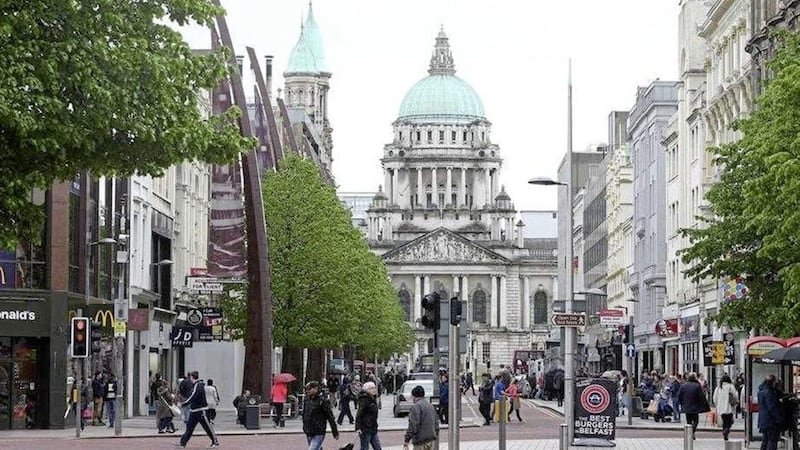A "GROUNDBREAKING" review of the rates system in Northern Ireland has been broadly welcomed by business groups.
Finance minister Máirtín Ó Muilleoir announced a range of measures on Tuesday including replacing the small business rate relief scheme with a £22 million fund for small retail and hospitality sectors.
Other proposals including lifting the £400,000 cap on domestic rates, increasing rates on empty business properties and charging a levy on charity shops.
Mr Ó Muilleoir said the proposals were aimed at creating a system that "encourages regeneration, investment and entrepreneurship, while at the same time discourages dereliction and decline".
He said the £22m stimulus for retailers and hospitality firms "will increase the average award for eligible businesses to two-and-a-half times the current levels under the small business rate relief scheme".
"It will mean that any business with a Net Annual Value of less than £10,000 will only pay 50 per cent rates while businesses right up to £25,000 NAV will get significant support."
In a joint statement, the Northern Ireland Independent Retail Trade Association (NIIRTA) and Hospitality Ulster welcomed the planned reform.
NIIRTA chief executives Glyn Roberts and Hospitality Ulster chief Colin Neill said the new £22m relief plans were "significant and we urge cross party backing for this business-critical plan".
“These proposals are not just supporting the growth in retail and hospitality, but also given our members commitment to sourcing local produce, they are a real boost for the local supply chain and for the agri-food sectors among others. In addition, we believe this plan is good for town and city centre regeneration and for growing our tourism potential.”
“Directly assisting our independent retail and hospitality sectors is in line with existing rate relief for Manufacturing and Agriculture. Not only will this rate relief scheme be beneficial for many existing independent retail and hospitality businesses, it will potentially assist new start businesses in our sectors with a substantial rate reduction helping reduce their start-up costs. Businesses will have the confidence to reinvest the money on hiring new staff, further skills training and planning for the future.”
Other measures announced included providing incentives to convert unoccupied space in town centres into living accommodation.
And Belfast will see pilot 'business empowerment zones' in a bid to boost regeneration.
“The introduction of business empowerment zones in east and west Belfast at a cost of £1million on a pilot basis shows we are willing to try bold new approaches to rebuild working class areas. These proposals will not work alone but will require joined-up approaches," said Mr Ó Muilleoir.
On removing the cap on domestic rates, he added: “I believe that those who can afford to contribute to the rating system should do so. However, the application of a £400,000 cap means that those in houses with a higher value pay proportionately less than those in middle or lower value homes. I want to see this corrected with measures introduced to ensure a more proportionate contribution, while safeguarding elderly pensioners on low incomes who have remained in high value family homes
“These are tough choices but our determination to modernise the rating system, support more jobs and to boost our town centres and high streets demands bold action.”






